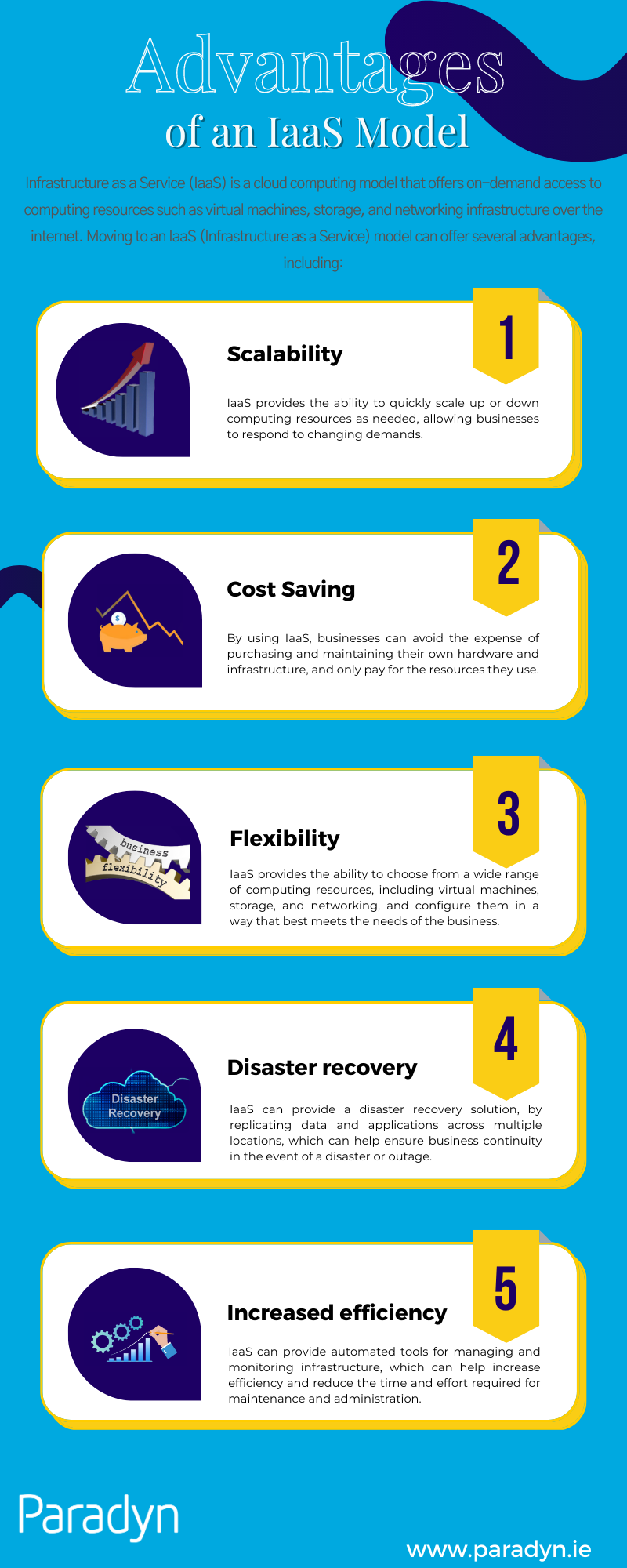
Infrastructure as a Service (IaaS) is a cloud computing model that offers on-demand access to computing resources such as virtual machines, storage, and networking infrastructure over the internet. IaaS providers offer scalable and flexible computing resources that can be provisioned in minutes and are often priced on a pay-as-you-go basis.
One of the key benefits of IaaS is its ability to reduce capital expenditures on hardware and infrastructure. In traditional on-premises IT infrastructure, businesses need to invest heavily in hardware, software, and maintenance costs. IaaS eliminates the need for businesses to purchase and maintain costly hardware and infrastructure, allowing them to focus on their core business activities.
IaaS also offers businesses the flexibility to scale up or down their computing resources as needed, depending on their current workload. This means that businesses can quickly adjust their resources to meet changing demands, such as seasonal spikes in website traffic, without incurring unnecessary costs.
Another significant advantage of IaaS is its ability to offer disaster recovery and business continuity. IaaS providers have multiple data centres in different locations, which allows for data redundancy and disaster recovery. In the event of a natural disaster, power outage, or other unforeseen event, IaaS providers can quickly transfer data and computing resources to a different data centre, ensuring business continuity.
Security is always a top concern for businesses when it comes to their IT infrastructure. When you move to an IaaS model, you will enhance your security with a range of measures, including data encryption, intrusion detection, and access control. This ensures that businesses’ data and applications are secure from cyber threats and unauthorized access.
IaaS providers also offer high availability and reliability. They have redundant hardware and networks, which means that if a server or network fails, there are backup systems in place to ensure that applications and data are still accessible. This high level of availability and reliability ensures that businesses can operate without interruption, which is critical for their success.
Finally, IaaS offers a low barrier to entry for businesses that are just starting out. In traditional IT infrastructure, businesses need to invest heavily in hardware and infrastructure before they can begin operations. With IaaS, businesses can start small and scale up as their operations grow, without incurring significant upfront costs.
In conclusion, Infrastructure as a Service (IaaS) offers many benefits to businesses, including reduced capital expenditures, scalability, disaster recovery, security, high availability, reliability, and a low barrier to entry. By leveraging IaaS, businesses can focus on their core activities while leaving the infrastructure management to their cloud provider.

